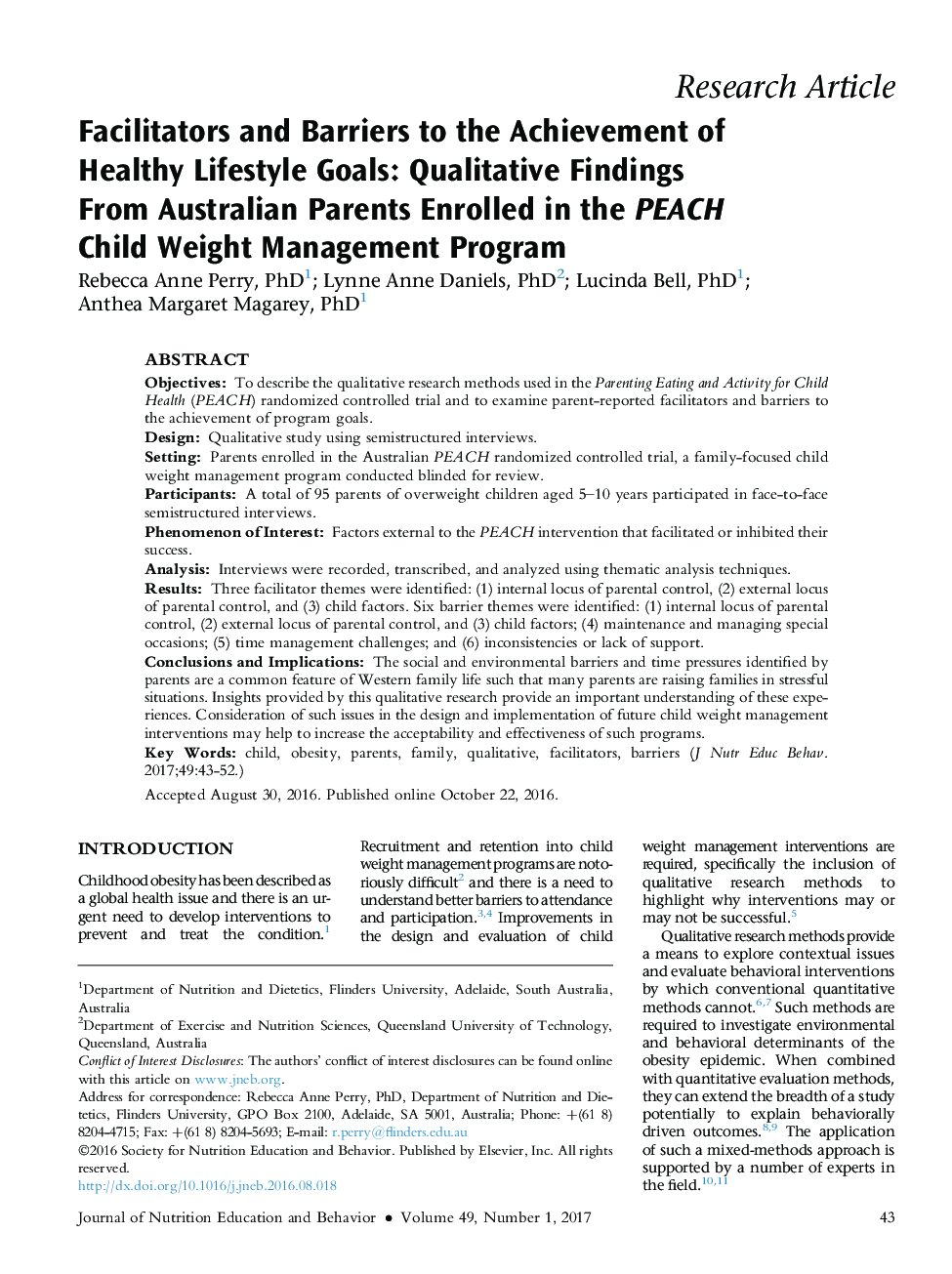| Article ID | Journal | Published Year | Pages | File Type |
|---|---|---|---|---|
| 4939480 | Journal of Nutrition Education and Behavior | 2017 | 11 Pages |
ObjectivesTo describe the qualitative research methods used in the Parenting Eating and Activity for Child Health (PEACH) randomized controlled trial and to examine parent-reported facilitators and barriers to the achievement of program goals.DesignQualitative study using semistructured interviews.SettingParents enrolled in the Australian PEACH randomized controlled trial, a family-focused child weight management program conducted blinded for review.ParticipantsA total of 95 parents of overweight children aged 5-10Â years participated in face-to-face semistructured interviews.Phenomenon of InterestFactors external to the PEACH intervention that facilitated or inhibited their success.AnalysisInterviews were recorded, transcribed, and analyzed using thematic analysis techniques.ResultsThree facilitator themes were identified: (1) internal locus of parental control, (2) external locus of parental control, and (3) child factors. Six barrier themes were identified: (1) internal locus of parental control, (2) external locus of parental control, and (3) child factors; (4) maintenance and managing special occasions; (5) time management challenges; and (6) inconsistencies or lack of support.Conclusions and ImplicationsThe social and environmental barriers and time pressures identified by parents are a common feature of Western family life such that many parents are raising families in stressful situations. Insights provided by this qualitative research provide an important understanding of these experiences. Consideration of such issues in the design and implementation of future child weight management interventions may help to increase the acceptability and effectiveness of such programs.
